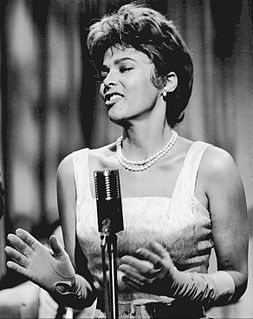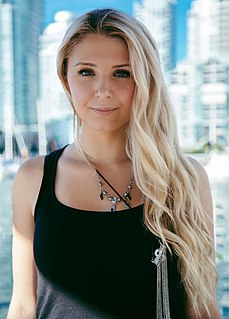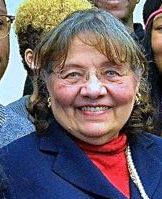A Quote by Dorothy Dandridge
Related Quotes
There were tens of thousands of pilgrims, from all over the world. They were of all colors, from blue-eyed blonds to black-skinned Africans. But we were all participating in the same ritual, displaying a spirit of unity and brotherhood that my experiences in America had led me to believe never could exist between the white and non-white.
Once there were brook trout in the streams in the mountains. You could see them standing in the amber current where the white edges of their fins wimpled softly in the flow. They smelled of moss in your hand. Polished and muscular and torsional. On their backs were vermiculate patterns that were maps of the world in its becoming. Maps and mazes. Of a thing which could not be put back. Not be made right again. In the deep glens where they lived all things were older than man and they hummed of mystery.
I started writing stories at a young age, but not once did it occur to me that I could grow up to be a writer. Who could I look to? My favorite authors were Ann M. Martin and E.L. Konigsburg and Judy Blume, Beverly Cleary and Lois Lowry and Norma Klein. They were all white women, and they seemed so stately to me, so elegant. A whole world away.
I love to just listen and watch. I could happily watch a security camera at a store. Often during a day I'll see a guy selling pretzels or an argument that somebody's having on a stoop and I'll think, "Oh I wish I had my camera, I wish I could capture this moment." There's something about people being people and interacting that can be so beautiful when it's framed by a camera. That desire to capture people as they are, and the stubbornness to keep going when they don't necessarily want you to capture them being who they are, are key.
Those who came to the United States didn't realize they were white until they got here. They were told they were white. They had to learn they were white. An Irish peasant coming from British imperial abuse in Ireland during the potato famine in the 1840s, arrives in the United States. You ask him or her what they are. They say, "I am Irish." No, you're white. "What do you mean, I am white?" And they point me out. "Oh, I see what you mean. This is a strange land."
If you were a successful upper-middle-class Negro girl in the 1950s and '60s, you were, in practice and imagination, a white Protestant upper middle-class girl. Young, good-looking white women were the most desirable creatures in the world. It was hard not to want to imitate them; it was highly toxic, too, as we would learn.
For I am Saruman the Wise, Saruman Ring-maker, Saruman of Many Colours!' I looked then and saw that his robes, which had seemed white, were not so, but were woven of all colours, and if he moved they shimmered and changed hue so that the eye was bewildered. I liked white better,' I said. White!' he sneered. 'It serves as a beginning. White cloth may be dyed. The white page can be overwritten; and the white light can be broken.' In which case it is no longer white,' said I. 'And he that breaks a thing to find out what it is has left the path of wisdom.' - Gandalf



































